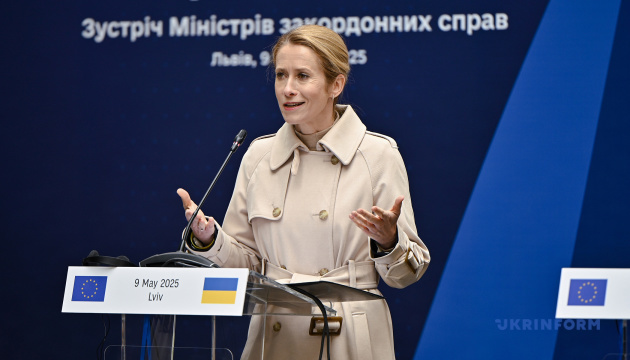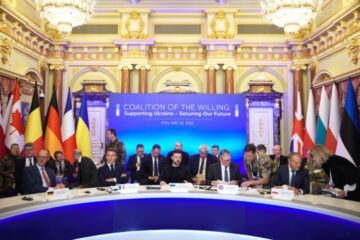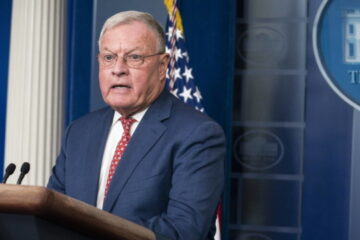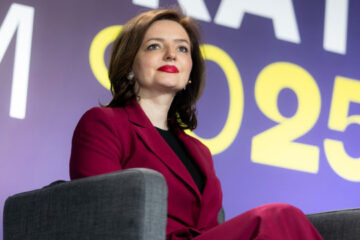Ukraine celebrates Europe Day on May 9. On this day, delegations from 35 countries, including the EU High Representative, came to Lviv not just for the holiday. European diplomats, together with the Council of Europe, expressed political support for the establishment of the Special Tribunal for the Crime of Aggression against Ukraine.
Ukrainian Foreign Minister Andrii Sybiha formulated this message from Lviv to the head of the aggressor state, Vladimir Putin, from foreign partners: “No matter how much you consider yourself a so-called winner, punishment is inevitable!” On the day of the Kremlin dictator’s holiday in Moscow under the slogan “We can repeat it,” this gesture by European diplomats is symbolic.
Kaja Kallas, European Union High Representative for Foreign Affairs and Security Policy, commented to Ukrinform in Lviv about the launch of the special tribunal, Hungary’s blocking of negotiations on Ukraine’s accession to the EU, and it is important for her to be in Ukraine on May 9.
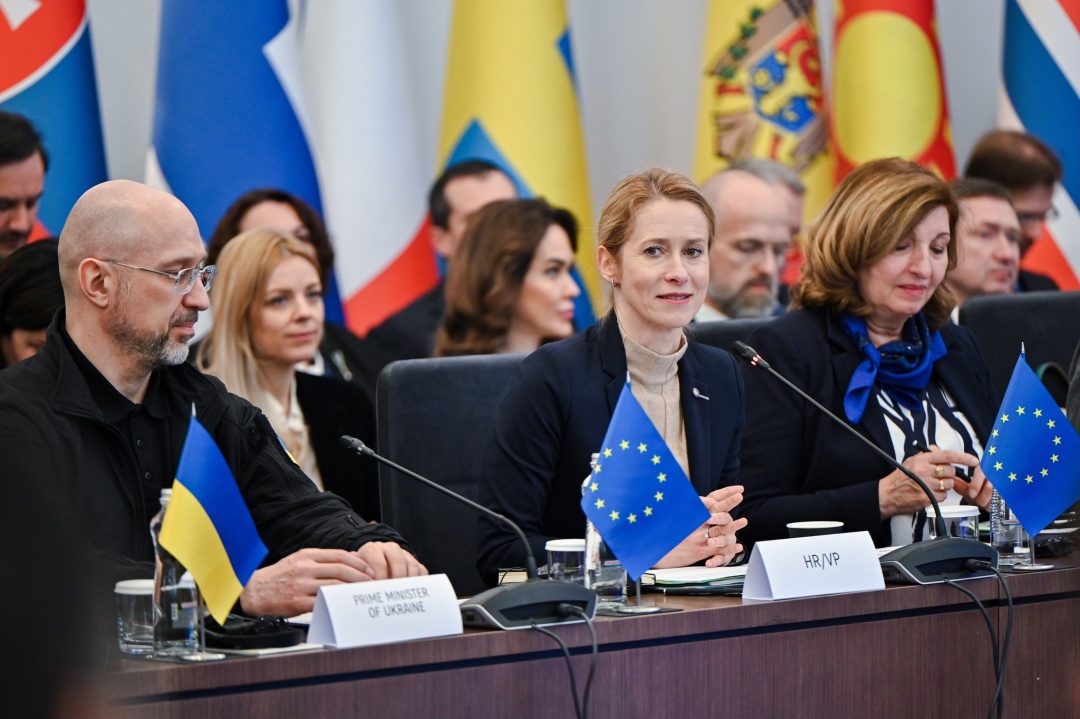
– You came to Lviv to send a message of support to Ukraine and also announce about the launch of the tribunal. How many countries have supported it? Do you consider the possibility that the reluctance of the U.S. can undermine your endeavour?
– To start things, we have the Core Group, and I am happy that the technical work has been done. Today, we are giving the political endorsement, which means that around 40 countries are already involved. But all countries can join if they want.
What is important is that this tribunal is for the crime of aggression of a leadership. The leaders decide when to attack another country. And then the other level is the war crimes committed by those soldiers who are coming here. Without the leadership crime, there wouldn’t be any war crimes either. The accountability must be there on all levels.
America worked with us for two years in this Core Group. They have done a lot of work, and we hope they will also join later because now all the technical details have been sorted out.
– Will this tribunal and the EU countries seek justice for the crime of aggression from 2022? I ask you because it started from a hybrid war in 2014. Iryna Mudra, the deputy head of the President’s Office, said it is unfair to leave Ukrainians who suffered from the start of Russian occupation behind justice. Do you agree with that?
– I was a member of the European Parliament in 2014, and I remember very well when Crimea was annexed. Many European countries did not understand what was at stake.
Now, many inside and also outside of the European Union support Ukraine. That means that everybody sees the picture in the same way.
There cannot be peace without justice. The crimes need to be held accountable.

I WOULDN’T FOCUS TOO MUCH ON RUSSIA’S THREATS
– Russia tends to threaten countries and hamper the process of justice. Can you speak of any impediments that EU member states and the EU Commission face during the whole process of seeking justice?
– Russia is threatening all the time. This is their modus operandi. So, there is nothing new. The only response that we can have to this is not to be afraid.
I would not focus too much on their efforts because it is important that we are here, overcoming the technical issues and putting together the legal structure.
– Since Minister Sybiha mentioned that you will focus on the EU enlargement today, I want to ask you about the rumour about the Moldova-Ukraine split in the EU accession.
– Even yesterday, we were discussing enlargement – and with our Hungarian colleagues. It is good that Ukraine is having meetings with Hungary to solve the bilateral issues.
On our side, we are also saying that these bilateral issues – not only in Ukraine but in other countries-candidates cannot be an obstacle if the country has done their homework, which means all the reforms that the European Union requires.
When it comes to Moldova and Ukraine to be split, then yes, there have been voices like this. But this is the decision that goes together.
ONE COUNTRY IN THE EU CAN’T HOLD HOSTAGE EVERYONE ELSE
– Ukraine is trying to cooperate with Hungary. Is there anything the Commission can do to change their position? Or should we wait for their election next year? Our Vice Prime Minister, Olga Stefanishyna, said yesterday that it was unfair. We did our homework, but we are being asked to stay in line.
– Yes, this is unfair. That is why we have had those discussions and those that Hungary would not block.
We are also working on the way to adopt decisions on our side and implement the treaties. Because if the majority – 26 states – are in favour and one is against then this one country cannot hold hostage everybody else.
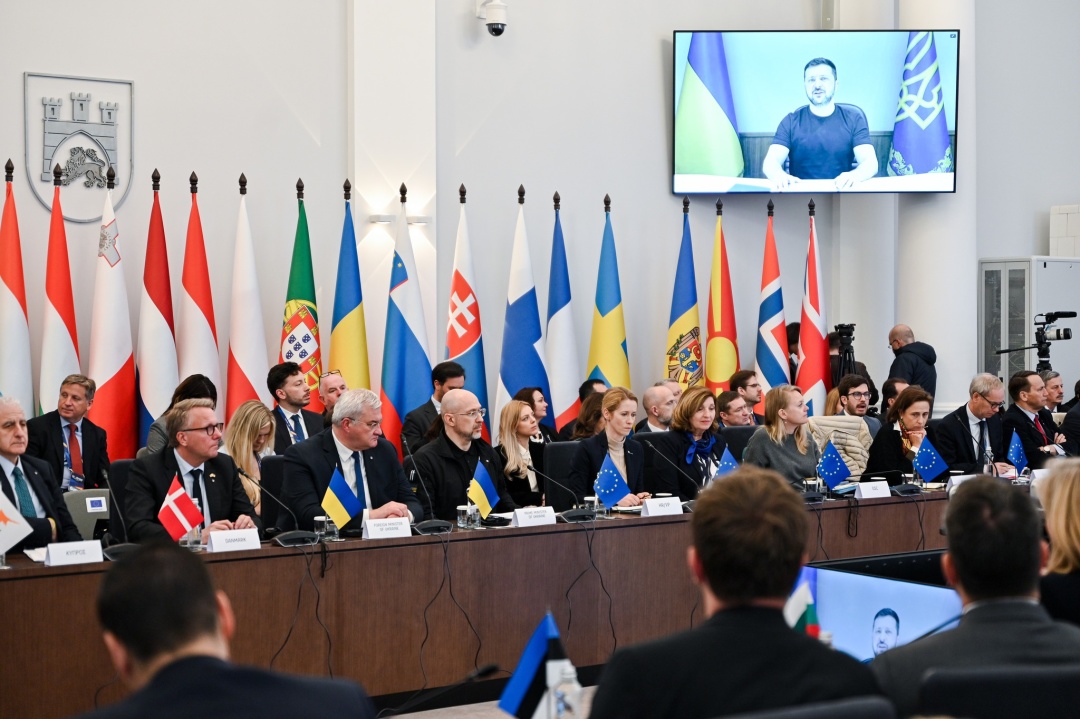
IT’S HARD FOR ME TO UNDERSTAND HOW TO STAND SIDE BY SIDE WITH THIS PERSONE WHO STARTED THE WAR
– Russia celebrates their Victory Day today. But you come from Estonia where it was followed by the decades-long occupation. What do you feel, seeing history repeating itself and watching Russia making a cult out of it? What is your message to European leaders who went there?
– We were visiting the Superhumans hospital today. People there were hit and lost their limbs. We went to the Lviv cemetery. It is hard for me to understand how you can stand side by side with this person who has started a full-scale war and sent soldiers to kill young people and civilians here.
We are in Ukraine on Europe Day with foreign ministers of the European Union, the UK, Norway and Moldova. There was even North Macedonia. We are here to celebrate together with Ukrainians because they are a part of Europe. Whoever stands for peace should be today in Ukraine, not in Moscow.
On May 9, I want to say that at one point, Putin started celebrating this. It was not an issue before, and it was not a thing after the Soviet Union collapsed.
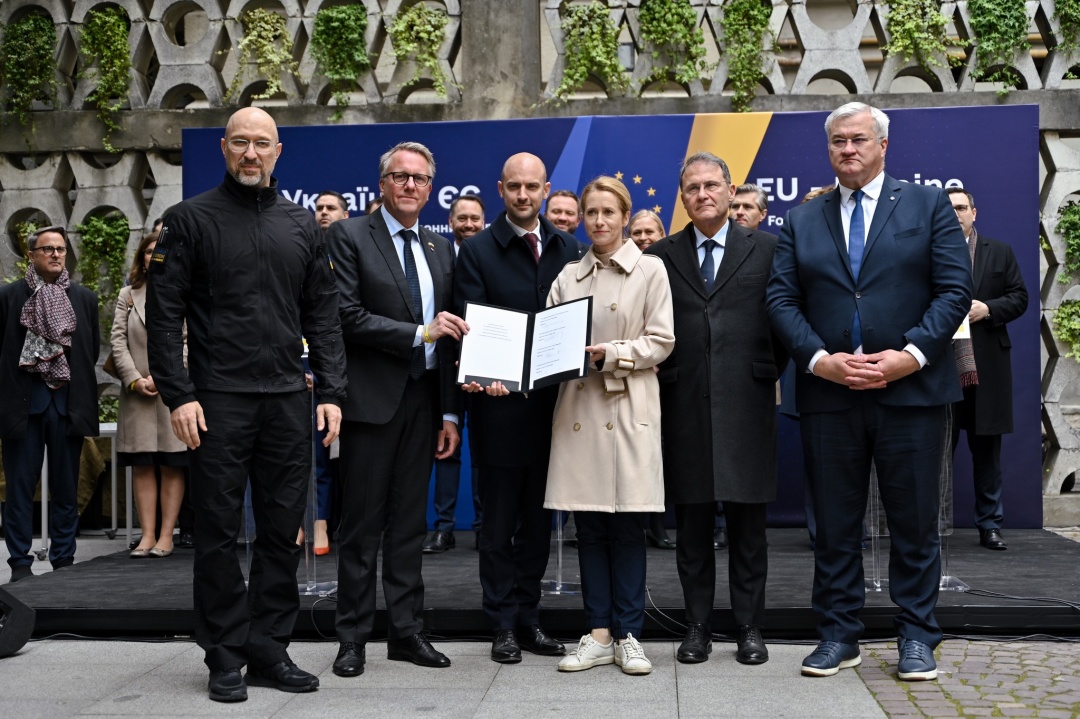
We also had our Russian minority who were celebrating. And we were having these discussions because if, on May 10, Stalin had said that my country was free to go and to build up its prosperity and freedom, then we could have also celebrated the end of the Second World War.
For us, the occupation started together with mass deportations and killings, suppressing our language and culture.
You know this very well. It is happening in the occupied territories. So, I am glad we are celebrating European Day together as Europeans. Europe is a peace project.
Ivan Kosiakin, Lviv
Source: Kaja Kallas, EU's High Representative for Foreign Affairs and Security Policy

